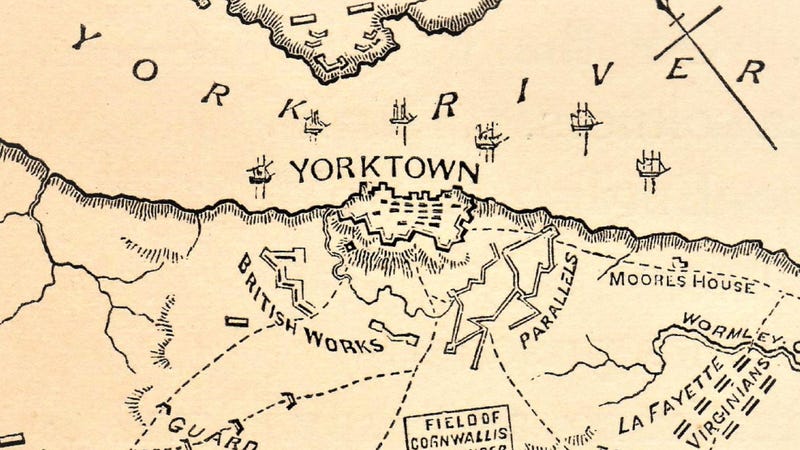
PHILADELPHIA (KYW Newsradio) — There are two sides to every story, including history.
We're taught that the Battle of Yorktown was a great victory for the American Revolution, but it also played a role in embedding slavery into the groundwork of the new nation that came after.
Dr. Gregory Urwin, professor of history at Temple University, wrote about this in the Journal of the American Revolution.
Listen to Dr. Urwin's full KYW Newsradio In Depth interview with Matt Leon below.

"I was taught in school that Yorktown was the decisive victory that guaranteed American independence in the Revolutionary War. It's the battle of the siege that made America free, so something worth celebrating," said Urwin.
"But if you were African-American, and most were slaves, it was a victory that also perpetuated the existence of slavery. For another eight decades, African Americans, at least a large number of them saw the British cause as the one that offered them the greatest opportunity for liberty, for freedom."
Urwin said that since the Redcoats arrived on colonial shores during the war, and particularly in southern colonies like Georgia, South Carolina, and Virginia, Blacks tended to "link their fortunes" with the British side that eventually lost.
"George Washington, a few days after the surrender, he will convert his army into an army of slave catchers to round them up, place them in a couple of detention centers so they can be reclaimed," said Urwin.
"The people who kept those practices going had what they thought were perfectly valid reasons for doing so. That's one reason why it's important to study history and to look at the inconvenient truths to get by the triumphalist approach that so many Americans hold dear."
Urwin said that the men who founded America as a nation "achieved something remarkable" and agreed to principles of broader freedoms that Americans have expanded.
"But they weren't perfect," he said.
"You can't say 'All men are created equal' and then say, 'Well, that only really applies to white men who have a certain amount of land, you know, a certain amount of wealth, doesn't apply to women, doesn't apply to people of color, it doesn't apply to Native Americans,' et cetera."
However, Urwin said enough Americans took the belief in equality for all far enough to launch a "trajectory to making things better," even as it involved a lot of struggle.
"Still, the United States I think has ended up becoming something, at least up to this point, in time greater and freer than the people who founded it could have imagined,” said Urwin.
He talked much more about how Washington and Thomas Jefferson felt about slavery, and about parts of the Treaty of Paris that involved the return of slaves to their owners.
Urwin also gave his thoughts on how much of the early American story has not been discovered because we have seen so much of it through white perspectives, the need for a more inclusive view of American history, and the current pushback against such a more complete perspective of our past.
Read Dr. Urwin's article here.
Listen to Dr. Urwin's full KYW Newsradio In Depth interview with Matt Leon below.




